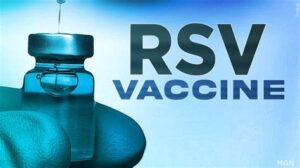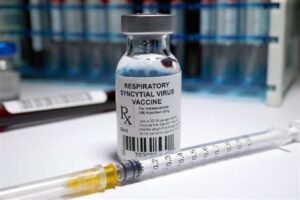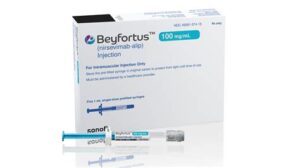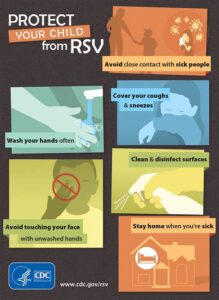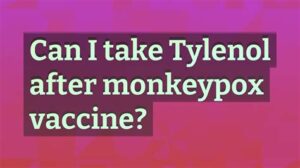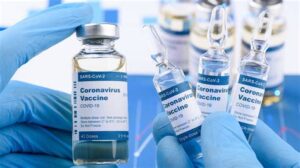Explore the relationship between alcohol and RSV vaccine efficacy, immune response, and guidelines for safe drinking after vaccination. Stay informed with the latest research.As the medical community continues to advance in the fight against respiratory syncytial virus (RSV), the introduction of the RSV vaccine brings hope to many, especially those at higher risk. However, with any vaccination, questions about lifestyle choices arise, particularly regarding alcohol consumption. This blog post delves into the intricacies of the RSV vaccine, exploring how alcohol may affect its efficacy and our immune response. We’ll discuss guidelines for drinking after vaccination and highlight recent research investigating the interaction between alcohol and the RSV vaccine. Understanding these factors is crucial for anyone considering the vaccine and wanting to maximize its benefits while maintaining a healthy lifestyle. Join us as we navigate this important topic, ensuring you’re well-informed about the RSV vaccine and its interplay with alcohol.
Understanding the RSV Vaccine
The RSV vaccine is designed to protect against Respiratory Syncytial Virus (RSV), a significant cause of respiratory illness, particularly in infants and the elderly. This vaccine has gained attention due to the impact of RSV on public health, with the virus being highly contagious and responsible for numerous hospitalizations each year.
The current vaccination strategies aim to stimulate the immune system to recognize and combat the virus effectively. Research has focused on various formulations to ensure optimal safety and efficacy, with some vaccines already showing promise in clinical trials. For instance, palivizumab, a monoclonal antibody, is prescribed to high-risk infants to prevent RSV infections.
Understanding the dynamics of the RSV vaccine is crucial, especially as we explore the interactions of various lifestyle factors, such as alcohol consumption, which may affect vaccine efficacy and the immune response. Thus, it’s essential for individuals to discuss such concerns with their healthcare providers.
Effects of Alcohol on Vaccine Efficacy
Alcohol consumption can have a range of effects on the body, one of which may include influencing the efficacy of vaccines. Understanding how alcohol interacts with the immune system is crucial, especially when considering receiving vaccines such as the RSV vaccine. Research suggests that excessive alcohol intake can impair immune function, potentially reducing vaccine effectiveness.
Studies have shown that moderate to heavy alcohol consumption may inhibit the production of antibodies in response to vaccination. This is particularly noteworthy for vaccines, as a robust antibody response is often necessary for adequate protection against viral infections. For instance, some experiments indicate that individuals who consume high amounts of alcohol may experience a decreased immune response compared to those who abstain or consume alcohol minimally.
Moreover, it’s essential to consider the timing of alcohol consumption surrounding vaccination. Drinking alcohol shortly after receiving a vaccine may not only alter the immediate immune response but also affect the duration of immunity. Therefore, individuals are advised to be mindful of their alcohol intake when planning vaccinations, particularly with new vaccines like the RSV vaccine, which may engage the immune system differently.
Impact of Alcohol on Immune Response
Alcohol consumption can have significant effects on the immune system. Studies show that moderate to heavy drinking can impair the body’s ability to fight off infections and respond to vaccinations effectively. This is particularly important when considering the timing of alcohol consumption in relation to vaccination.
When an individual consumes alcohol, it can lead to several physiological changes that occur within the body. These changes can weaken the immune response, making it less effective in combating pathogens, including those introduced through vaccines. For instance, alcohol has been found to suppress the production of cytokines, which are crucial for the communication between cells during immune responses.
| Effects of Alcohol on Immune Function | Impact on Vaccine Efficacy |
|---|---|
| Reduced cytokine production | Weaker antibody response |
| Impaired T-cell function | Lower overall immunity |
| Decreased nutrient absorption | Less effective immune response |
In light of this information, it is essential for individuals to be mindful of their alcohol consumption both before and after receiving vaccinations. Engaging in responsible drinking habits can play a vital role in ensuring that vaccines, including the RSV vaccine, function optimally, thus enhancing overall public health outcomes.
Guidelines for Drinking After RSV Vaccination
Receiving the RSV vaccine is a crucial step in protecting yourself from respiratory syncytial virus, especially for those at high risk. However, many individuals may wonder about the implications of alcohol consumption after vaccination. Here are some important guidelines to consider.
1. Timing is Important: It is generally advisable to wait for at least 24 hours after receiving the RSV vaccine before consuming alcohol. This allows your body to start building immunity without any potential hindrances.
2. Moderation is Key: If you decide to drink, do so in moderation. Excessive alcohol can impair your immune response, which is essential for the effectiveness of the vaccine.
3. Listen to Your Body: After vaccination, it’s not uncommon to feel some mild side effects such as fatigue or soreness. If you are experiencing these symptoms, it may be wise to avoid alcohol until you feel fully recovered.
In summary, while there is no definitive rule prohibiting alcohol after receiving the RSV vaccine, adhering to the above
Research on Alcohol and RSV Vaccine Interaction
The interaction between alcohol and the RSV vaccine has garnered attention in recent years, especially as public health emphasizes vaccination for preventing respiratory syncytial virus (RSV) infections. Understanding how alcohol consumption might affect the efficacy of this vaccine is crucial for both efficacy and safety.
Alcohol can impact the immune system, leading researchers to question whether drinking before or after receiving the RSV vaccine could diminish its effectiveness. The effects of alcohol on immune function are compounded by the fact that the RSV vaccine is intended to stimulate an immune response to provide protection against infections.
Some studies suggest that moderate to heavy alcohol consumption may impair the body’s ability to mount an effective immune response. For instance, data indicate that alcohol can suppress the function of T-cells, which are crucial for vaccine-mediated immunity. More research is needed to firmly establish the relationship between alcohol consumption and the effectiveness of the RSV vaccine, but preliminary findings advocate for caution.
In summary, while vaccination against RSV is critical, considering the potential interactions between alcohol and the vaccine may be necessary for maximizing its effectiveness. Individuals planning to get vaccinated may want to
Frequently Asked Questions
What is RSV and why is it important to discuss?
RSV, or respiratory syncytial virus, is a common virus that causes respiratory infections, particularly in young children and older adults. Discussing it is important due to its potential severity and the recent development of vaccines.
What is the new RSV vaccine and how does it work?
The new RSV vaccine is designed to prevent respiratory syncytial virus infections by stimulating the immune system to recognize and fight the virus, reducing the risk of severe illness, particularly in high-risk populations.
Can alcohol consumption affect the efficacy of the RSV vaccine?
While moderate alcohol consumption is generally not expected to influence the effectiveness of vaccines, excessive drinking can impair immune function and may potentially reduce vaccine efficacy.
Is it safe to drink alcohol after receiving the RSV vaccine?
For most people, moderate drinking is considered safe after receiving the RSV vaccine. However, individuals should consult their healthcare provider for personalized advice.
Are there any side effects associated with the RSV vaccine?
Common side effects of the RSV vaccine may include soreness at the injection site, mild fever, and fatigue. Serious side effects are rare, but individuals should discuss any concerns with their healthcare provider.
Who are the recommended recipients of the RSV vaccine?
The RSV vaccine is primarily recommended for infants, young children, and older adults, particularly those with underlying health conditions or compromised immune systems.
What should individuals consider before drinking alcohol after vaccination?
Individuals should consider their overall health, any medications they are taking, and the amount of alcohol consumed. It’s always advisable to consult with a healthcare professional regarding personal circumstances.
